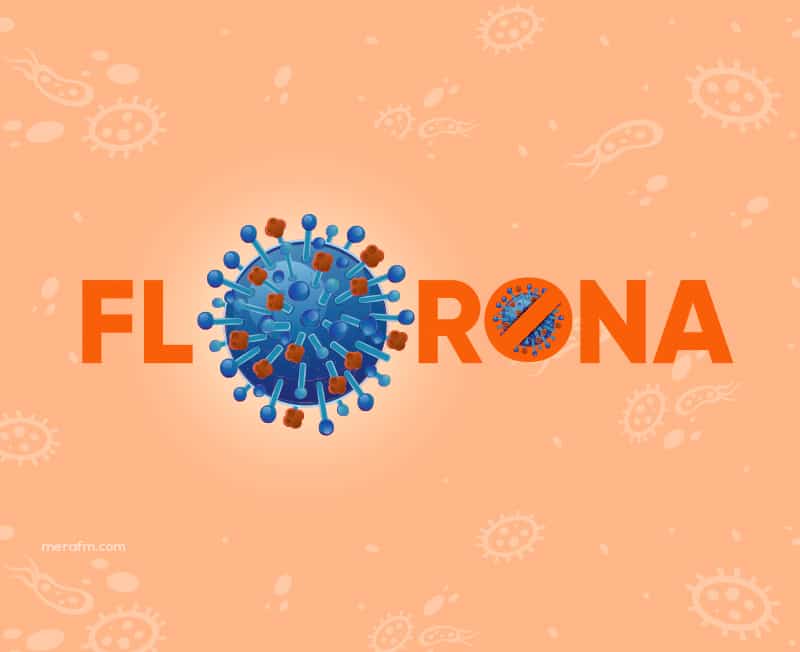
Everything to know about Israel’s disease Florona
Florona, another Covid variant?
A case of ‘Florona,’ or flu + Corona, has been found in Israel, which is a novel development. According to accounts, both the influenza virus and SARS-Cov-2 enter the body at the same time, causing a dramatic collapse in defense.
Who was the first Florona case?
According to accounts, the first incidence involved a pregnant woman who was admitted to a hospital to give birth. The young woman was not inoculated against both viruses, according to the Israeli publication Yedioth Ahronoth.
Also Read: Everything to know about the Omicron variant of Covid-19
This occurs as cases of Omicron and Delta variants are on the rise. It is, however, not a brand-new variation. The incidence of flu and coronavirus at the same time has been the subject of research. According to Israeli experts, the number of instances of influenza has increased in recent weeks.
What is Florona?
It is “possible to catch both infections at the same time,” according to the World Health Organization (WHO). “Vaccination with both vaccines is the most effective strategy to prevent hospitalization and severe Covid-19 and influenza,” according to a statement on the WHO website.
Also Read: Pakistan detects first Omicron case
How can it spread?
The viruses that cause Covid-19 and the flu, according to mayoclinic.org, spread in similar ways. They can both spread among persons who are in close proximity to one another (within six feet, or two meters). The viruses are transferred by respiratory droplets or aerosols that are released when people talk, sneeze, or cough. These droplets can fall into someone’s mouth or nose, or they can be inhaled. If a person contacts a surface that has one of the viruses on it and then touches his or her lips, nose, or eyes, the virus can spread.
How can you diagnose Florona?
While flu symptoms might show anywhere from three to four days after exposure, coronavirus symptoms can take anywhere from two to fourteen days. While both symptoms include cough and cold, fever, and runny nose, the sole difference, according to Dr. P Venkat, Internal Medicine, Artemis Hospital, is seen when the sample is sent for testing.
For flu, a PCR test is done to look for the virus’s RNA (or Ribonucleic acid, which is required for all forms of life). Different PCR testing is carried out for both viruses. Both viruses have different genotypes. Lab tests are the only way to tell the difference.
How can you prevent the newly emerged variant?
According to the World Health Organization, the most effective approach to protecting oneself against both influenza and severe Covid-19 is to acquire both influenza and Covid vaccines.
People should also continue to follow preventive measures such as keeping at least a one-meter distance from others, wearing a well-fitted mask when this is not possible, avoiding crowded and poorly ventilated places and settings, opening windows and doors to keep rooms well ventilated, and washing their hands frequently, according to the WHO.
Also Read: Should you be wearing a mask if you’re vaccinated against covid?
Have something to add to the story? Comment down below!

Pakistan detects first Omicron case
Pakistan detects first Omicron case
KARACHI, Pakistan – A provincial health ministry official told on Thursday that Pakistani authorities had discovered the first case of the Omicron type of coronavirus in the country.
The virus was discovered in an unvaccinated patient being treated at a private hospital in Karachi. Pakistan’s most populated metropolis, according to a representative for Sindh’s southern province.
The patient had traveled abroad, according to the official, who did not specify where the patient had gone. However did say that contact tracking was underway
Sindh Health Minister Azra Fazal Pechuho told the authorities, “suspect the case to be of the Omicron variant due to the virus’ behavior.”
Also Read: Omicron threat: Sindh allows booster shots of vaccine
“The genome sequencing has not been done as of now, but we suspect it to be the Omicron variant due to the manner in which the virus is behaving”.
The alleged Omicron-affected patient is a 57-year-old woman from the province capital, according to her.
The Omicron variant spreads quickly. However, recent reports from South Africa suggest that the variant does not cause a high number of deaths.
In the wake of the Omicron variant of coronavirus, the National Command and Operations Centre (NCOC) imposed travel restrictions earlier this week, adding eight more nations, largely in Europe, to Category C, which prohibits inbound travelers.
Omicron world update for travelers
The number of countries in Category C has expanded from 7 to 15 as a result of the latest expansion. Netherlands, Hungary, Ireland, Croatia, Ukraine, Slovenia, Vietnam, Poland, South Africa, Mozambique, Lesotho, Eswatini, Botswana, Zimbabwe, and Namibia are among the countries on the list.
Passengers from Category C nations will be completely barred from entering Pakistan, according to the NCOC. It went on to say that only ‘necessary’ travel from those nations would be permitted, subject to a special committee’s approval.
Also Read: Everything to know about the Omicron variant of Covid-19
The forum went on to say that all visitors to Pakistan would be required to get vaccinated. Moreover, take a PCR test. Which would be required for Pakistanis and foreigners over the age of six. And that the PCR test would have to be taken 48 hours before boarding.
The Omicron coronavirus variety was initially found by South African health officials last month. Moreover, the World Health Organization designated it as a “variant of concern” (WHO). Scientists are currently gathering information to determine how contagious it is and how serious it is.
Last but not least if you have something to add to the story? Comment down below!
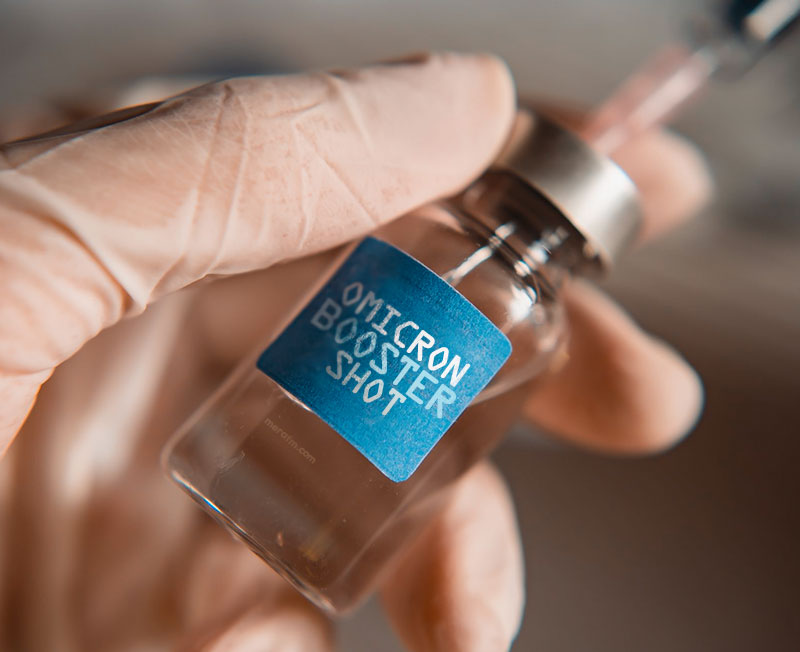
Omicron threat: Sindh allows booster shots of vaccine
Sindh allows booster shots of vaccine amid Omicron threat
KARACHI: As international countries, including Pakistan’s, race to contain Omicron, a new significantly mutated Covid-19 strain. Sindh’s government approved the delivery of a Pfizer booster shot aimed at halting the spread of the new strain on Sunday.
Sindh Health Secretary Zulfiqar Ali Shah stated that the provincial government has made a decision in this regard and that a notification will be released soon.
He claimed that all fully vaccinated people can take advantage of the service. That will be supplied free of charge by the Sindh government. The decision was made in response to fears of a fresh Covid-19 outbreak in the province.
Omicron variant, a new Covid-19 threat!
Because of suspicions that the variety, now known as Omicron, is highly infectious. It has put doubt on global attempts to combat the epidemic. Compelling governments to reimpose safeguards that many had assumed were no longer necessary. Scientists are trying to figure just how dangerous the significantly altered strain is, especially if it can avoid existing vaccines.
Several governments have also stated that travel from southern Africa, where the virus was initially discovered, will be restricted. The National Command and Operation Centre (NCOC) banned travelers from South Africa, Mozambique, Namibia, Lesotho, Eswatini, Botswana, and Hong Kong from entering the country on Saturday.
The NCOC’s leader, Planning Minister Asad Umar, acknowledged the travel restrictions on six South African countries and Hong Kong but added that the discovery of the new variation emphasized the importance of vaccinating all eligible residents.
Based on the emergence of the new Covid variant, notification has been issued to restrict travel from 6 South African countries and Hong Kong,” Umar said in a tweet.
“The emergence of new variant makes it even more urgent to vaccinate all eligible citizens 12 years and older,” he added.
Meanwhile, global authorities were alarmed on Friday after a new coronavirus variation was discovered in South Africa. With the EU and the United Kingdom among those increasing border controls as experts attempted to determine whether the mutation was vaccine-resistant.
Read More: Everything to know about the Omicron variant of Covid-19
The World Health Organization (WHO) urged against premature steps after Britain stopped flights from South Africa and neighboring nations and asked travelers returning from there to be quarantined.
Covid situation in Pakistan
Fortunately, no deaths were reported owing to coronavirus on Sunday; nonetheless, 3,081 testings revealed 37 new cases. According to a statement released by CM House on Sunday, 3,081 samples were examined, with 37 cases discovered, representing a current detection rate of 1.2 percent. Currently, there are 6,378 patients undergoing treatment, with 6,162 in home isolation. In addition to that 14 were in isolation centers, and 202 were in various hospitals.
The condition of 197 patients was described as critical, with 16 being placed on ventilators.
Furthermore, Karachi has been linked to 35 of the 37 new cases. The announcement shared immunization data, stating that 23,935,812 vaccines have been administered as of November 26. In the last 24 hours, at least 74,143 people have been immunized, according to the report.
Moreover, vaccines have been administered to a total of 24,009,955 people, accounting for 44.67 percent of the vaccine-eligible population.
Have something to add to the story? Comment down below!

Everything to know about the Omicron variant of Covid-19
The horrors of Omicron Variant
The World Health Organization (WHO) designated a novel SARS-CoV-2 variant presently circulating in South Africa as a ‘variant of concern’ on Friday. It was also given the name Omicron.
The mutation was discovered on Monday by the Network for Genomics Surveillance in South Africa (NGS-SA). It had discovered a cluster of SARS-CoV-2 viruses that belonged to the B.1.1.529 lineage.
According to preliminary findings, this variant may be even more transmissible than the highly infectious Delta form. And current vaccinations may be less effective against it.
What do we know about Omicron thus far?
As SARS-CoV-2 spreads, new variants occur, and the significance of each mutation is discovered after some time. However, health authorities around the world must keep a close eye on which ones are more vital than others. The NGS-SA discovered B.1.1.529 as part of such an experiment.
Also Read: Covid-19 Delta Variant: All you should know about this strain
B.1.1.529 has several spike protein mutations, according to what is currently known. And a preliminary study suggests it is highly contagious. Over the previous two weeks, South Africa has seen a four-fold spike in new cases, corresponding with the appearance of B.1.1.529.
B.1.1.529 has rapidly expanded in Gauteng province, which encompasses Johannesburg and Pretoria, from November 25, 2021. According to the NGS-SA, and may already be present in most provinces. Cluster outbreaks, according to the NGS-SA, may be behind the ongoing increase in cases.
What are the modifications that make this Omicron variant unique?
The new variety B.1.1.529 has “very unusual constellations of mutations,” according to the NGS-SA, with 30 in the region that encodes the spike protein, which is important for the virus’s entry into human cells.
The modifications in Omicron variant
Some of the alterations are well-characterized, having a known phenotypic influence on transmissibility and immune evasion, according to the study. In the Alpha and Delta forms, some of these mutations have already been discovered. Many other mutations, however, have been “rarely observed until now and not well characterized,” according to the NGS-SA. As a result, the full relevance of these alterations is unknown at this time. “More investigations are underway to determine the possible impact of these mutations on the capacity of the virus to transmit more efficiently. To impact vaccine effectiveness and evade the immune response, and/or to cause more severe or milder disease,” the Africa Centers for Disease Control (CDC) stated.
Also Read: Pakistan’s COVID-19 daily cases count less than 3,000 in September
Is there a difference in the symptoms?
According to the South African National Institute for Communicable Diseases (NICD), “no unique symptoms” have been observed as a result of infection with the B.1.1.529 strain. It has drawn attention to the fact that, like other infectious variations like Delta, some people are asymptomatic.
What should you do?
It’s unclear whether Omicron is more transmissible (i.e., easier to transfer from person to person) than other variations, such as Delta. In areas of South Africa afflicted by this variation, the number of people testing positive has increased. However epidemiologic studies are planned to determine if this is due to Omicron or other factors.
Individuals can reduce the spread of the COVID-19 virus by maintaining a physical distance of at least 1 metre from others, wearing a well-fitting mask, opening windows to improve ventilation, avoiding poorly ventilated or crowded spaces, keeping hands clean, coughing or sneezing into a bent elbow or tissue, and getting vaccinated when their turn comes.
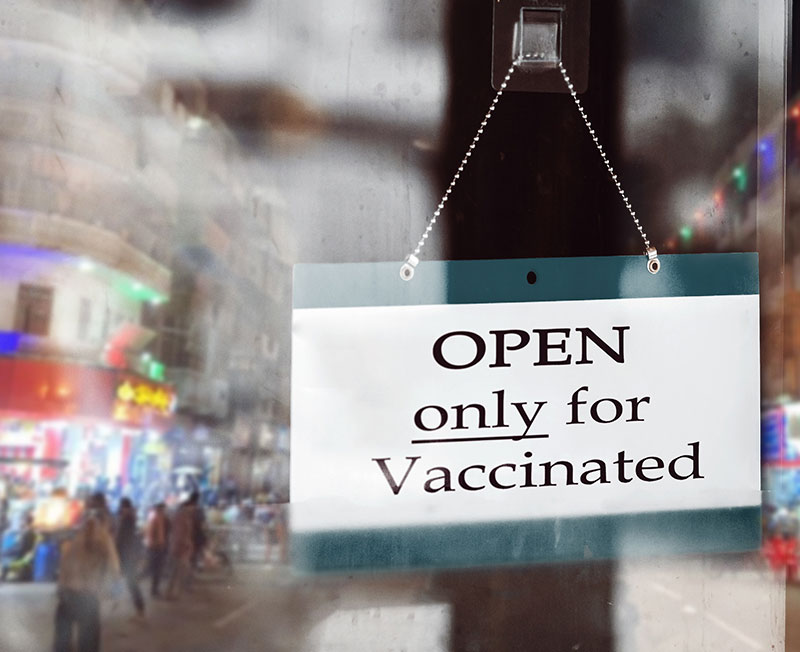
Sindh relaxes Covid-19 restrictions, allows indoor dining for vaccinated citizens
Sindh government relaxes Covid-19 restrictions
The Sindh government eased certain Covid-19 restrictions on Wednesday, allowing shops and businesses to stay open until 10 p.m. and indoor eating till midnight.
The new restrictions will be in place from September 16 (Thursday) through September 30, according to a notice published by the province Home Department.
Major takeaways
- Businesses/markets can operate till 10 pm
- Sunday is a closed day for the Karachi Division, Friday for the rest of the province
- Indoor dining allowed for vaccinated citizens at 50pc occupancy
- Takeaway/drive-through and home delivery allowed 24/7
- Indoor gatherings allowed for vaccinated individuals with a maximum capacity of 200 guests
- Normal working hours allowed at offices with 100pc attendance.
Also Read: Pakistan’s COVID-19 daily cases count less than 3,000 in September
Markets and companies operating in Covid-19 Sindh
Markets and companies will be permitted to operate until 10 p.m. under the new guidelines. Essential services, such as pharmacies, immunization centers, gas stations. Furthemore, grocery stores, bakeries, and milk and vegetable shops, will be permitted to operate 24 hours a day. And seven days a week.
“All management/staff/customers shall follow Covid related SOPs,” the notification said.
During the week, the Karachi Division has declared Sunday as the closing day for businesses and commercial activities. Meanwhile the rest of the province has declared Friday.
Also Read: Covid-19 Delta Variant: All you should know about this strain
Indoor eating will be allowed till 11:59 pm at 50 percent occupancy for vaccinated persons only.
The order states, “Carrying vaccination cards shall be mandatory for the purpose of inspection by law enforcement agencies.”
Food delivery restrictions for COVID-19 in Sindh
Takeout, drive-through, and home delivery are permitted 24 hours a day, seven days a week. Provided that workers adhere to SOPs and delivery people are vaccinated.
Meanwhile, vaccinated people can have indoor marriages and ceremonies with a maximum capacity of 200 people.
Shrines have been permitted to open at the discretion of the divisional/district administration. Meanwhile, offices with 100% attendance have been allowed to operate normal hours.
Also Read: Should you be wearing a mask if you’re vaccinated against covid?
However, theatres will stay closed across the province. All contact sports, such as karate, boxing, martial arts, wrestling, and rugby, would be prohibited.
In addition to that, Railway services will continue to operate with 70pc occupancy under strict Covid-19 protocols subject to the following all SOPs with staff and passengers fully vaccinated.
All amusement parks and swimming pools will operate at 50% capacity. The decision said that public parks may stay open under stringent Covid-19 procedures.
Wearing a mask will be compulsory at all public places, and only vaccinated persons will be able to travel under stringent Covid-19 standards.
Have something to add to the story? Comment down below!

Pakistan’s COVID-19 daily cases count less than 3,000 in September
Pakistan Covid-19 cases count less than 3000 in September
ISLAMABAD: Pakistan recorded 2,988 new Covid-19 infections in a single day on Monday, bringing the overall number of cases to 1,207,508, despite the country reporting fewer instances than a few weeks earlier.

This is the first time Pakistan has reported less than 3,000 coronavirus infections in more than a month, with 2,819 new cases recorded on July 25. For the previous month, the daily case count had generally remained in the 3,000-4,000 range.
Pakistan conducted 53,158 coronavirus tests in the previous 24 hours, according to statistics released by the National Command and Operation Centre (NCOC).
The Covid-19 positivity rate
In Pakistan, the positivity rate is now 5.62 percent. On 19 of the 21 days since August 24, Pakistan’s optimism rating has been below 7%. The total number of active cases in the country is 90,545.
In the previous 24 hours, 67 individuals have died as a result of the virus, bringing the overall death toll to 26,787, with 1,090,176 people recovering.
Also Read: Covid-19 Delta Variant: All you should know about this strain
COVID Pakistan reports, 19 cases are on the decline, with 3,602 new cases recorded on average each day. That’s 61 percent of the top, which was reached on June 17 with the highest daily average ever recorded.
Vaccination of citizens aged 15 and above starts today
From Monday, 13 September 2021, the National Command and Operation Centre will begin vaccinating adolescents aged 15 to 17. Ministry of National Health Services (NHS) spokesperson Sajid Shah said it had been decided to start administering dozes to teenagers in the age group of 15 to 17 years.
Also Read: Should you be wearing a mask if you’re vaccinated against covid?
Is Pfizer vaccine free of cost in Pakistan?
“They will be given Pfizer vaccine and the facility will be free of cost. Children in this age group are therefore advised to visit vaccination centers along with their Form B from the National Database and Registration Authority (Nadra),” he said.
Current stats of Covid-19 in Pakistan
So far, Pakistan has given out at least 67,342,288 doses of COVID vaccination. If each individual requires two doses, that would be enough to vaccinate approximately 15.5 percent of the country’s population.
Pakistan gave an average of 1,111,814 dosages per day over the past week reported. At this rate, administering enough dosages for another 10% of the population will take another 39 days.
Also Read: PakVac vaccine launched in Pakistan against Covid-19
Have something to add to the story? Comment down below!
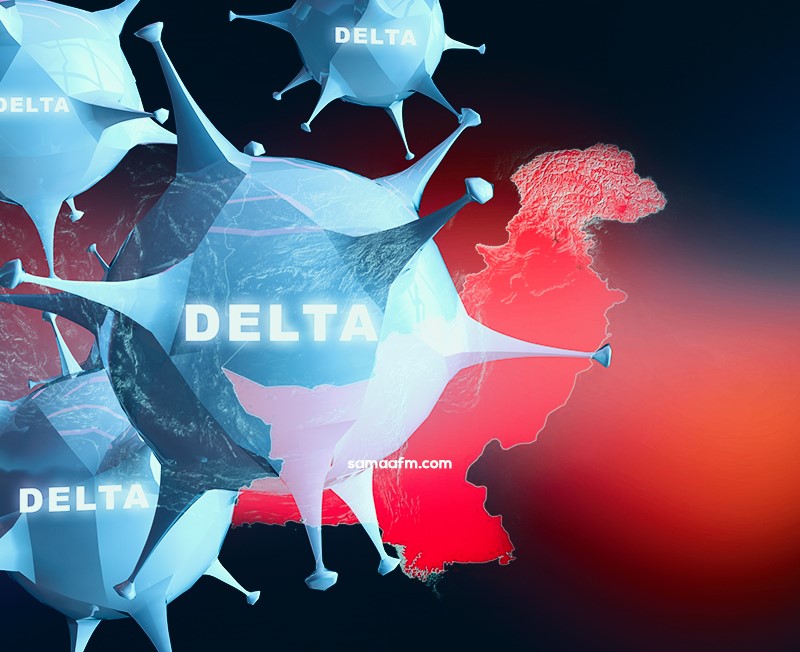
Covid-19 Delta Variant: All you should know about this strain
As the COVID-19 pandemic proceeds across the world, general health authorities are watching Covid changes and variations that might be more infectious or dangerous than the first strain. Infections continually change to adjust and endure, and variations arise when a strain has at least one transformation that contrasts with others. The CDC and World Health Organization (WHO) screen these variants to see whether transmission could prompt a hike in COVID-19 cases and deaths. Also whether current immunizations can give any assurance to reduce it.
What is the Delta variant?
According to WebMD, the Delta variant, also known as B.1.617.2, can spread more easily, according to the CDC. The strain has mutations on the spike protein that make it easier for it to infect human cells. That means people may be more contagious if they contract the virus and more easily spread it to others.
How infectious is Delta Variant?
First identified in India, Delta Plus has now been found in the U.S., U.K., and nearly a dozen other countries. India has labeled it a variant of concern. Analysts have also said that the Delta variation is about 50% more infectious than the Alpha variation, which was first recognized in the U.K., as indicated by ‘The Washington Post.’ Alpha, known as B.1.1.7, was 50% more infectious than the first Covid originally identified in China in 2019.
Also Read: Data shows fourth coronavirus wave is starting, says Dr. Faisal Sultan
How fast this variant spreads?
Wellbeing specialists estimate that the average individual who gets contaminated with Delta spreads it to three or four others, as contrasted and a couple of others through the first Covid strain, as per Yale Medicine. The Delta variation may likewise have the option to get away from insurance from antibodies and some COVID-19 medicines; however, studies are as yet progressing.
Symptoms of Delta Variant
The symptoms are similar to those seen with the original coronavirus strain and other variants, including a persistent cough, headache, fever, and sore throat.
Read More: Should you be wearing a mask if you’re vaccinated against covid?
How important is vaccination?
People who haven’t been fully vaccinated against COVID-19 are most at risk, Yale Medicine reported. According to various health specialists, the Delta variant can be suppressed by any vaccination dosage. Either Sinopharm, Sinovac, Pfizer, Moderna, and AstraZeneca if you are vaccinated you are less likely to be at risk. An individual still can contract the virus but the intensity will be reduced.
Have something to add to the story? Comment down below!
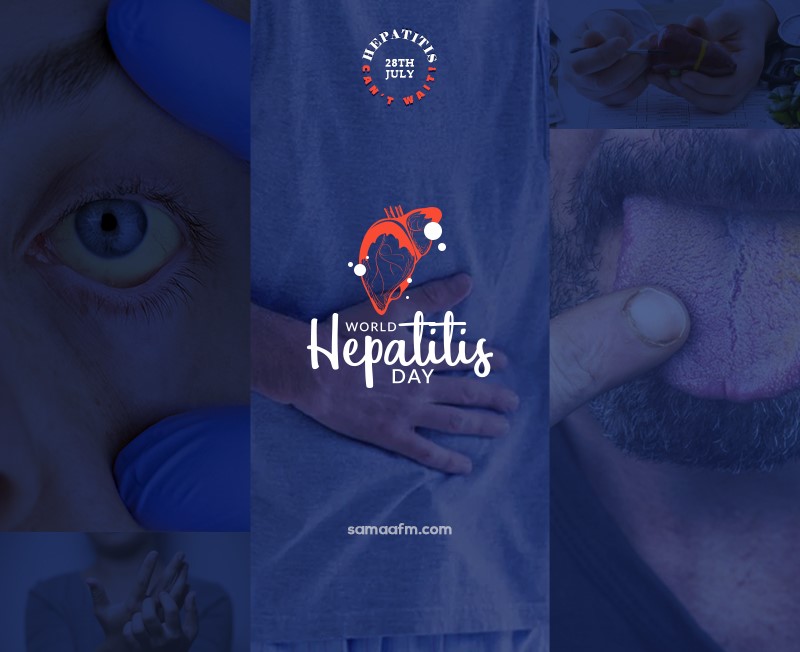
World Hepatitis Day 2021: History, significance, and awareness!
Hepatitis
The liver is perhaps the most essential organ of our body and assumes a significant part in the digestion interaction. Any harm caused to the liver influences the whole working of the body. Hepatitis alludes to an exceptionally infectious liver disease that causes inflammation of the liver wherein tissues respond to irritation or injury which generally outcomes in swelling and pain. This occurs because of an assortment of infections and non-infectious agents prompting a number of medical conditions, some of which can even be deadly.
There are numerous reasons for hepatitis where viral hepatitis is a significant one. Viral hepatitis is brought about by an infection and can either be acute or in most cases chronic or fatal.

Also Read: Everything to know about Naegleria Fowleri, the brain-eating amoeba
World Hepatitis Day (WHD) is praised each year on July 28 to spread awareness about viral hepatitis, an inflammation of the liver that can cause serious liver disease and hepatocellular disease.
Rate in Pakistan
Viral hepatitis is the eighth highest cause of death universally and was responsible for an estimated 1.34 million deaths in 2015, a toll comparable to that of HIV and tuberculosis. Globally, approximately 257 million persons are chronically infected with type B and 71 million with type C. At this rate, an estimated 20 million deaths will occur between 2015 and 2030.
Futhermore, significant risk factors for the transmission of type B and C disease incorporates injections, needle reuse, medical procedure/surgeries, improperly sterilized medical gadgets, blood transfusion, hospitalization, and sharing of razors while getting shaved from hairdressers. Some populace groups are profoundly influenced by type B and type C, for example, injectable clients and thalassemia patients. Moreover, for hepatitis C, the high commonness of disease is revealed in kids particularly the individuals who were conceded in medical clinics with intense hepatitis, while for HEV, the majority of the diseases were because of fecal contamination of water.
Warning Signs for Hepatitis
- Urine dark in color
- Stomach pain
- Jaundice
- Low-grade fever
- Loss of appetite
- Fatigue
- Feeling sick
- Aching joints
- Pale or clay-colored stool
Is hepatitis curable in humans?
While there is no treatment to fix type A or type E, they are generally self-remitting. Type B and type C can be relieved through medication. Aside from keeping up with cleanliness and sterilization, one should visit a specialist if that they have any side effects of viral hepatitis for better administration. Obliviousness towards symptoms can aggravate the condition. Implications include weak liver, destruction of liver tissues, weak immune system, and eventually liver cancer which leads up to death in certain acute cases.
Read More: Pakistan’s first liver autotransplantation performed at DUHS
Prevention
You might not have proper treatment but you can prevent it by taking these safety measures,
- Get vaccinated for type A and type B
- Use protection during physical contact
- Avoid sharing needles
- Maintain good hygiene
- Wash hands with soap regularly
- Avoid using items of an infected person
Have something to add to the story? Comment down below!
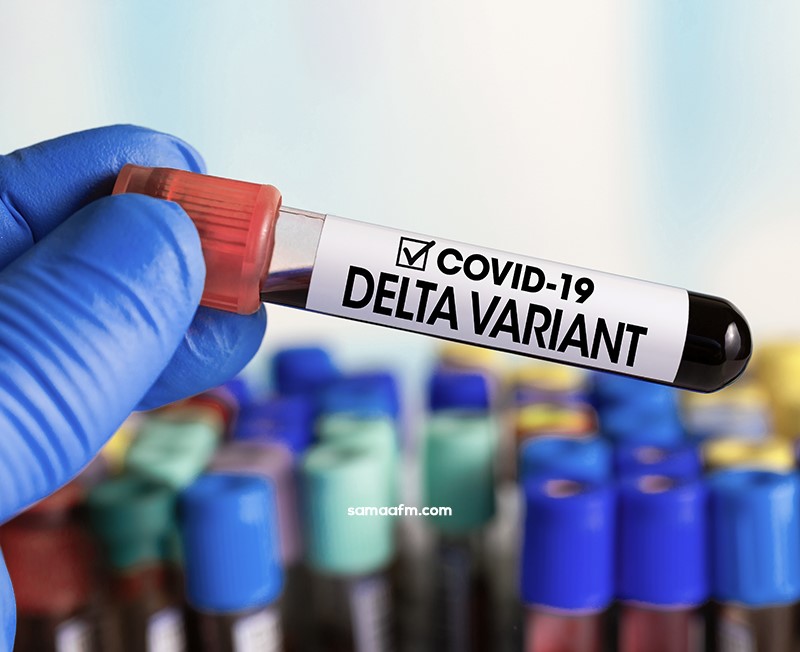
Data shows fourth coronavirus wave is starting, says Dr. Faisal Sultan
Coronavirus with delta variant is spreading
Special Assistant to the Prime Minister on Health Dr. Faisal Sultan said on Thursday that people should celebrate Eid-ul-Adha in a “limited, closed environment,” as coronavirus fourth wave starts to spread with the fears of Delta Variant.
As per emerging reports, Dr. Faisal Sultan spoke about the alarming rise in the new Delta variant cases of the coronavirus. He says that it shows that the fourth wave is starting in Pakistan.
Dr. Sultan said that the mutations in each new variant of the virus make it very easily “transferable.” Furthermore, he also said that, “This variant is spreading at a pace of 50-60%.”
Importance of coronavirus vaccination
Speaking about the importance of the coronavirus vaccines, Dr. Sultan said the present COVID-19 vaccines work on all types of variants of the virus. However, he said that each vaccine has different efficacy rates and that it is possible that people who have been previously vaccinated can contract the virus again.
Also Read: Asad Umar warns of fourth Covid-19 wave in July
Dr. Sultan said that as per data collected by the NCOC, it is evident that Pakistan is facing a fourth wave of the coronavirus. He said after a decline in the number of cases of the infection, large cities like Karachi were reporting high positivity ratios.
The Covid positivity rate in Karachi
Dr. Sultan said that according to information gathered by the NCOC, it is clear that Pakistan is confronting the fourth wave of Covid.
After a decrease in the number of cases of the virus, large urban city like Karachi shows high positivity rate rates. He also requested that every person must at least get one dose of the vaccine.
Moreover, about the cases of coronavirus spike the PM’s administrator said people got tired of businesses closing down over and over because of the various waves of the disease. He said, subsequently, numerous individuals forego wearing masks and other precautions which prompts a spike in instances of the disease.
“However, we must keep in mind that coronavirus vaccines are the most effective weapons against the coronavirus.”
Read More: Should you be wearing a mask if you’re vaccinated against covid?
Vaccine certificate and traveling policy
Answering a question about the coronavirus vaccination certificate, Dr. Sultan said the government has established an online portal that would help solve people’s problems related to obtaining certificates. Moreover, he reiterated that from August onwards people will be required to show coronavirus vaccine certificates. People who travel intercity also come under the same condition.
Have something to add to the story? Comment down below!

Should you be wearing a mask if you’re vaccinated against covid?
Covid vaccinations and the necessity of mask
You’re immunized against COVID, so isn’t it safe to dispose of your mask now? It depends. The World Health Organization has various suggestions for vaccinated people for various reasons. The clashing direction comes as the exceptionally infectious delta variant with overwhelming new cases all throughout the world, including Pakistan.
WHO officials repeated their recommendations that everyone should keep wearing their masks to lower the risk of the virus spread. This is happening due to the new variants entering the countries and there is no vaccination for that.
Read More: Asad Umar warns of fourth Covid-19 wave in July
According to the Centers for Disease Control and Prevention (CDC)
If you’ve been fully vaccinated, you can resume activities that you did prior to the pandemic.
- You can resume activities without wearing a mask or staying 6 feet apart, except where required by federal, state, local, or territorial laws, rules, and regulations. That includes local business and workplace guidance.
- If you travel you do not need to get tested before or after travel or self-quarantine after travel, especially in the US.
- People need to pay close attention to the situation at your international destination.
- There is not need to get tested before leaving your country unless your destination requires it.
- You still need to show a negative test result or documentation of recovery from COVID-19 before boarding an international flight to the United States.
- Get tested 3-5 days after international travel.
- You do NOT need to self-quarantine after arriving in the United States.
- If you’ve been around someone who has COVID-19, you do not need to stay away from others or get tested unless you have symptoms.
Delta variant
The delta variant is the latest variant and it is the most contagious of the variants identified so far. According to the WHO, the delta variant has been identified in 85 countries so far. And is spreading among the unvaccinated population, the organization said during the press conference.
Also Read: Everything to know about Naegleria Fowleri, the brain-eating amoeba
Wearing a mask consistently continues to be important, even for people who are vaccinated, a WHO official said during a press briefing in late June. “People cannot feel safe just because they had the two doses. They still need to protect themselves.”
Want to add something to the story? Comment down below!




